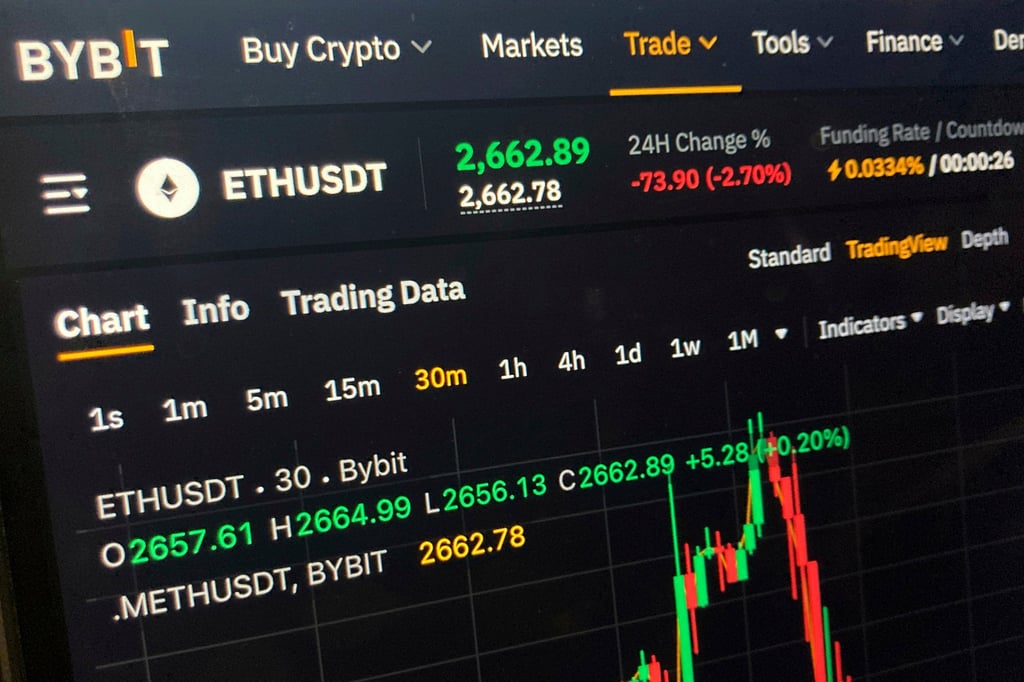It began, as so many epochal crimes do, with a single breach. But by the time the dust had settled on the Bybit hack, nearly US$1.5 billion in digital assets had vanished, exposing not just the vulnerabilities of Asia’s fledgling crypto markets but the growing reach of North Korea’s cyber operatives.
Advertisement
The hack on February 21 represented a quantum leap in the scale and sophistication of cyber operations emanating from North Korea, according to a report released last month by American blockchain analysis firm Chainalysis.
It accounted for nearly 70 per cent of all stolen digital assets globally in the first half of 2025 – laying bare the widening security cracks in Asia’s digital ecosystem and signalling the arrival of a new era of cybercrime that is increasingly targeting victims around the globe, from Bybit’s Dubai headquarters to the United States and beyond.
Last year, North Korea-linked cybercriminals were responsible for an estimated US$1.3 billion in losses, then the highest figure on record. But this year is shaping up to be even worse for the victims, with Pyongyang’s state-sponsored hackers on track to reap even greater illicit rewards, according to the Chainalysis report.

Experts warn that the sheer size of the Bybit heist is not the most alarming element. The degree of technical proficiency, coupled with clear signs of state involvement, have raised concerns that the stolen funds are being funnelled directly into North Korea’s arms and weapons programmes, fuelling instability far beyond the digital realm.
Advertisement
“While North Korea typically doesn’t claim responsibility for these cyber exploits, extensive evidence has linked them to sophisticated hacking groups like the Lazarus Group,” Diederik van Wersch, regional director for Asean at Chainalysis, told This Week in Asia.

